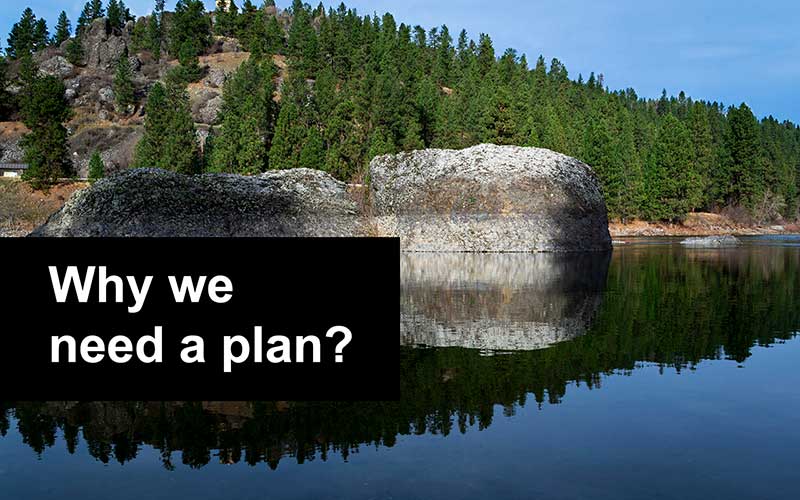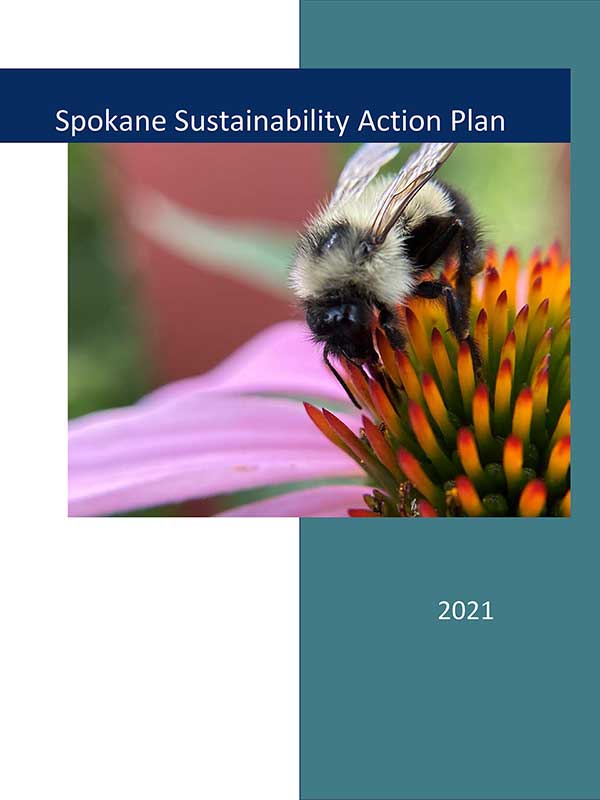Sustainability Action Plan
The 2021 Sustainability Action Plan (SAP) is an update to the City's 2009 Sustainability Action Plan. The Sustainability Action Subcommittee developed this update over a period of 2 ½ years, including a six-month public feedback period resulting in hundreds of recommended revisions. This final version of the SAP was adopted by City Council on October 25th, 2021. Select the links below to read the plan.
Full Report (PDF 6.8 MB)
Executive Summary (PDF 1.6 MB)
Individual Chapters
- Buildings & Energy (PDF 401 KB)
- Transportation & Land Use (PDF 735 KB)
- Waste Diversion & Material Conservation (PDF 605 KB)
- Water Resources (PDF 1.2 MB)
- Economic Prosperity (PDF 490 KB)
- Natural Environment (PDF 1.7 MB)
- Health & Wellbeing (PDF 490 KB)
- Implementation & Monitoring (PDF 2.7 MB)
Learn More

To learn more about why we need a Sustainability Action Plan, watch a 24 minute presentation. The video also addresses specific climate projections for the Spokane area, and the thought process that went into the creation of this draft Plan.
To request a member of the SAS at one of your community meetings, email sas@spokanecity.org.
Items of Interest
- SAS Steering Committee (PDF 121 KB)
- Water Conservation & Drought Recommendations (PDF 7.4 MB)
- Water Conservation & Drought Response Q&A (PDF 194 KB)
- Spokane’s Green Fleet Playbook (PDF 9.6 MB)

